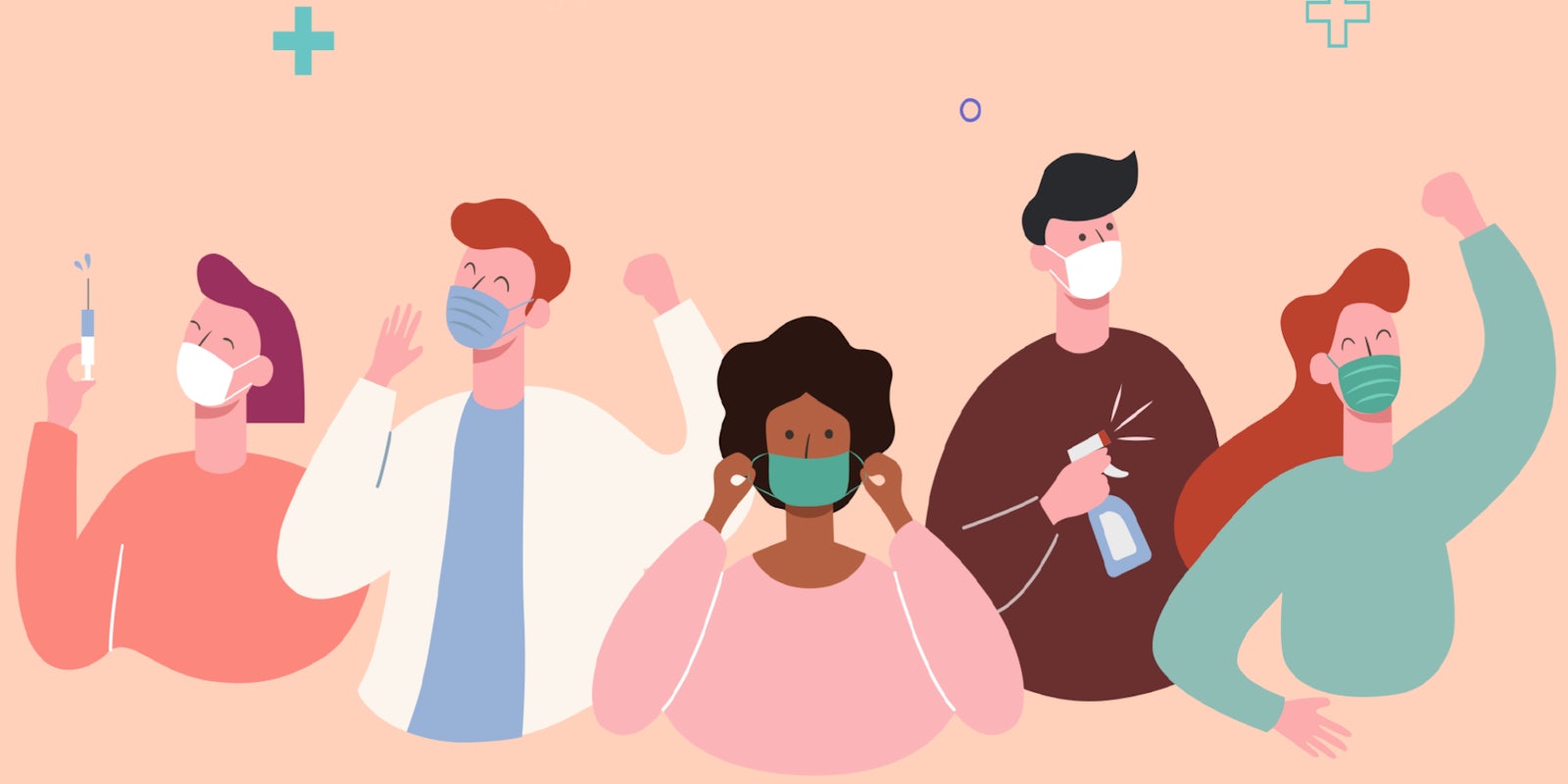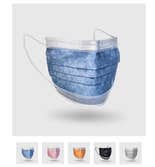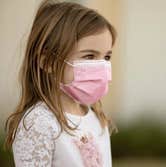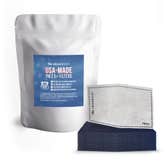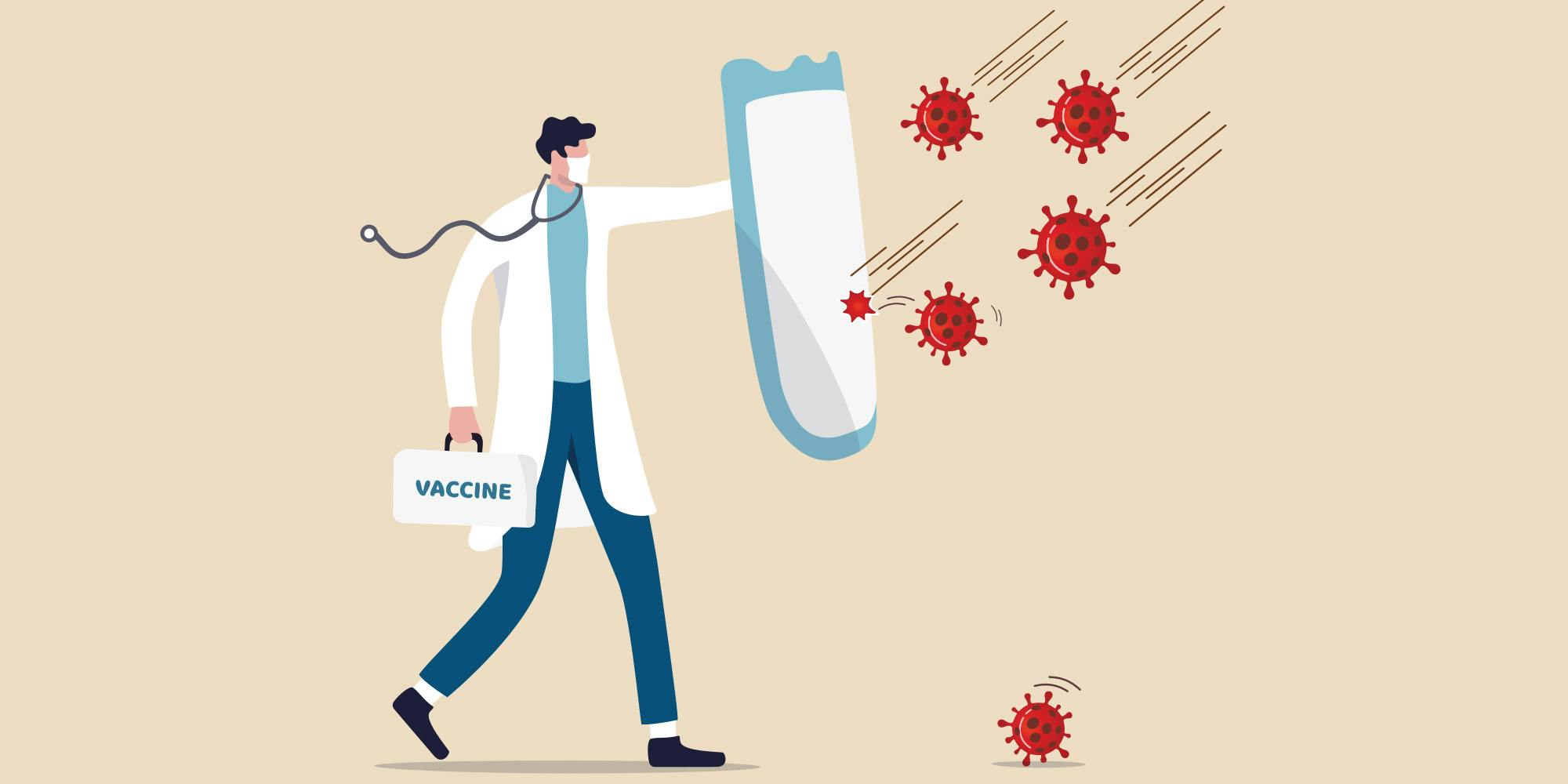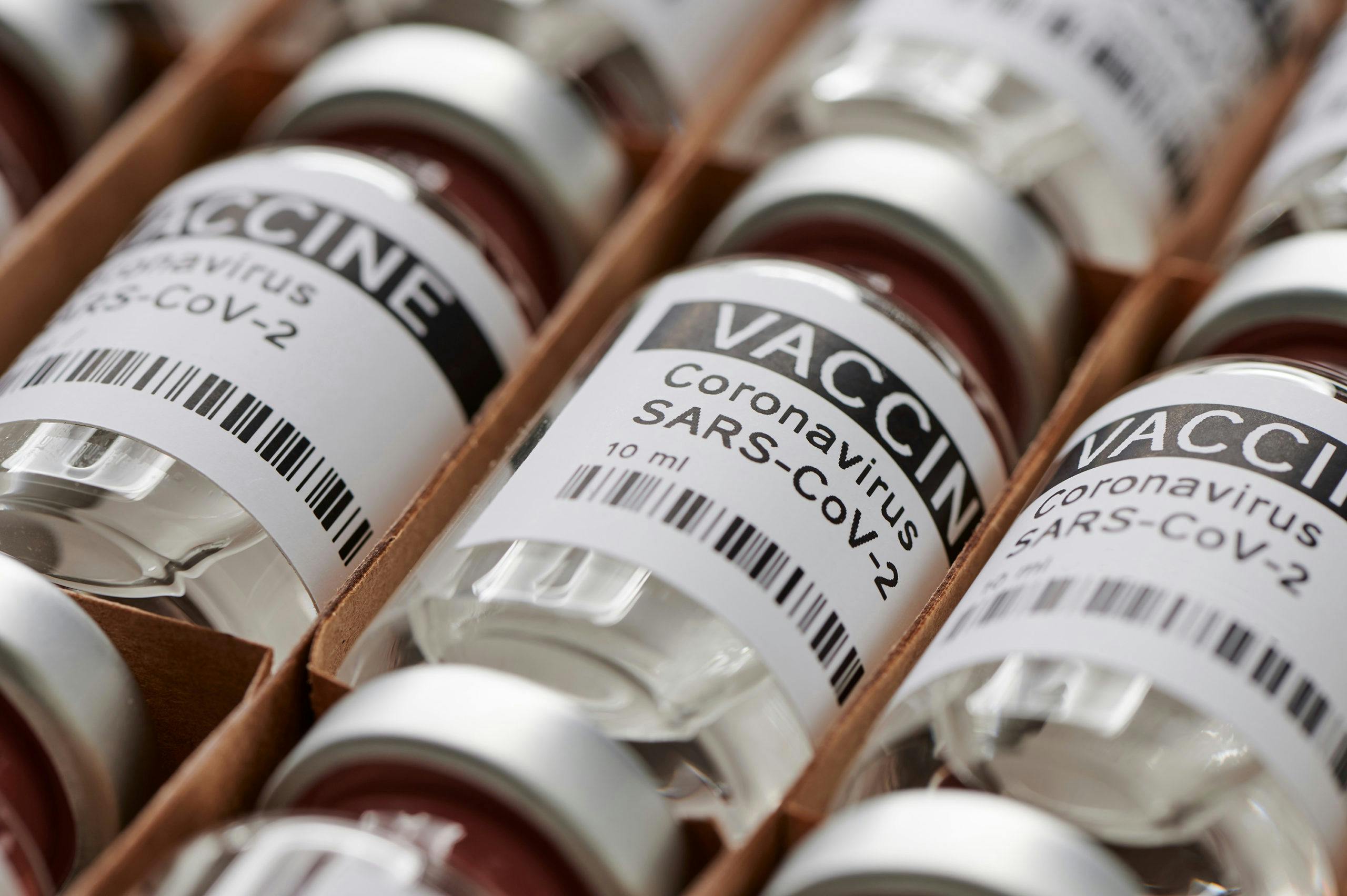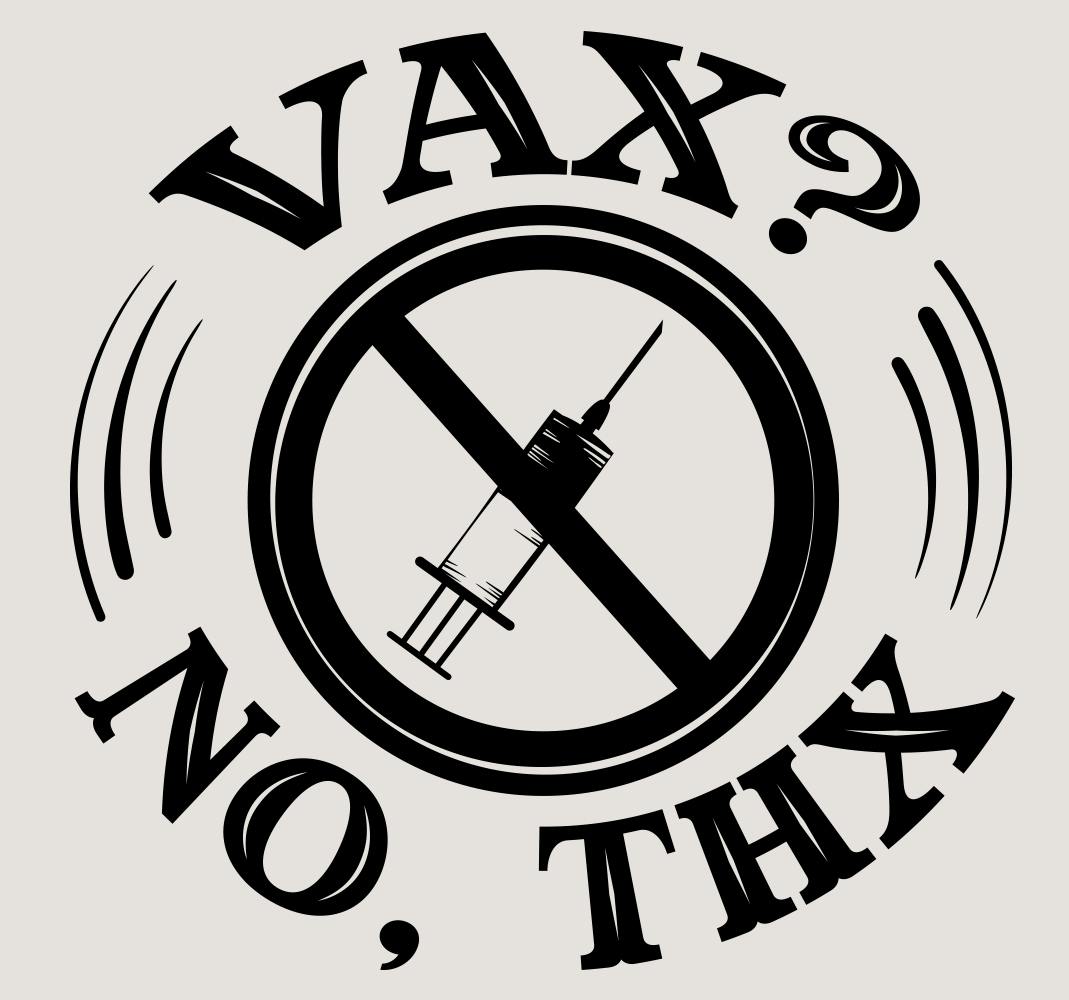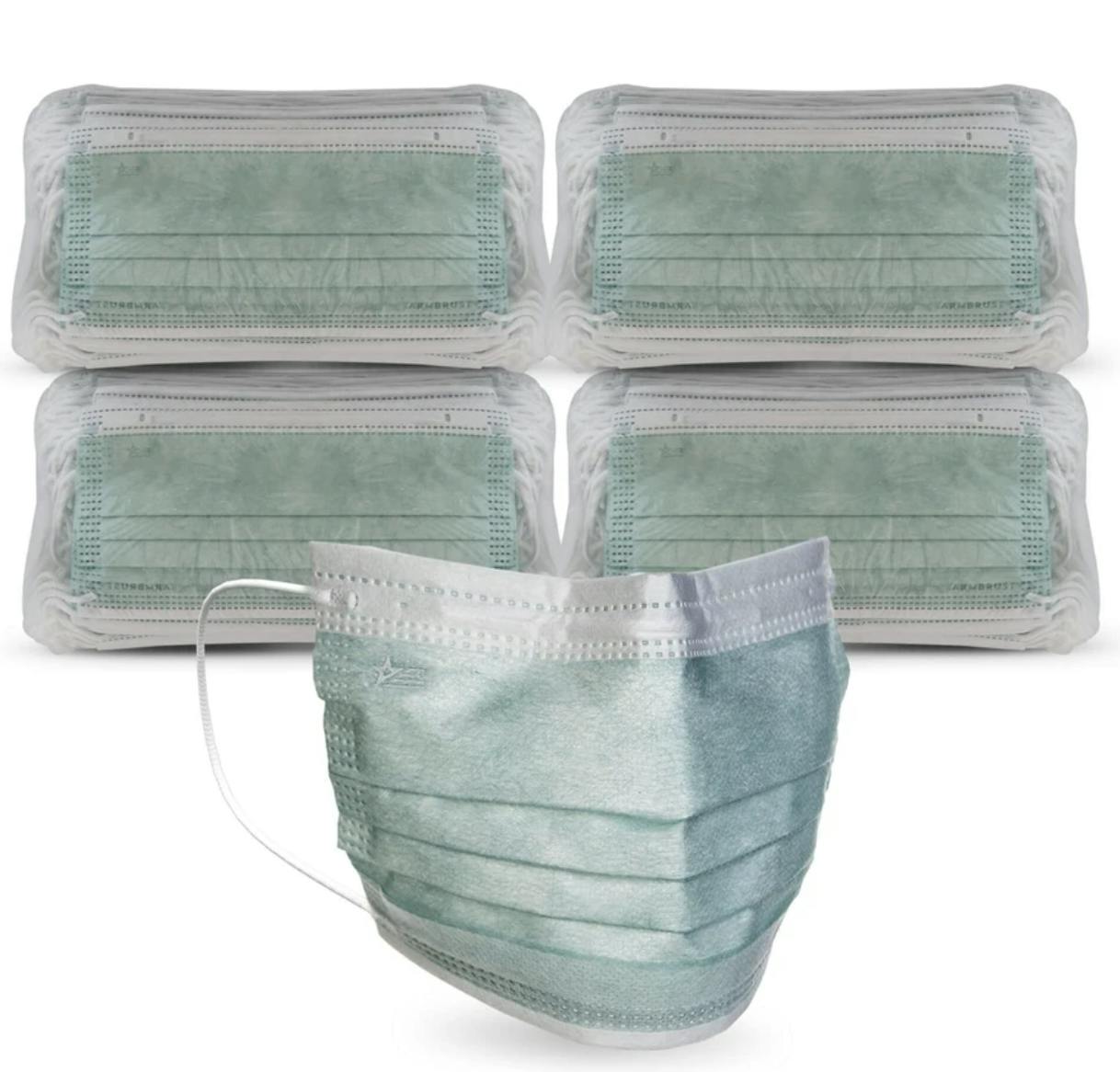If you’re one of the lucky few who have already received the COVID-19 vaccine, don’t go throwing your face masks away just yet. Although your body is building up antibodies and immunity to the novel coronavirus, a proper surgical mask is still necessary to curb the spread of COVID-19.
This news may come as a shock to you, which is totally fair. Staying safe and healthy has never been so confusing before. But hopefully, we can clear things up for you in this COVID vaccine and mask explainer.
Why do I need to wear a face mask if I’ve already received the COVID vaccination?
Regardless of if you’ve received the Moderna COVID vaccine, the Pfizer COVID vaccine, or the AstraZeneca COVID vaccine, you still need to wear a mask. There are a few reasons for this, so let’s start with the least obvious one.
Vaccinations are not 100% effective
The efficacy of all coronavirus vaccine options is not 100%. This isn’t exclusive to the vaccine for COVID-19, either. Flu vaccines aren’t 100% effective and neither is the chickenpox shot. But for the majority of people, they do work. And in the case that the vaccine doesn’t offer you complete immunity and you do end up contracting the coronavirus, your case will be much less disastrous than if you had not gotten vaccinated. Take my childhood experience as an example: when I was in the second grade my level had a small chickenpox epidemic.
It all started with Lawrence, who caught the virus from one of his eight siblings. Lawrence was asymptomatic for a few days, so he came to school and continued life as usual. Then what seemed like out of nowhere, our second-grade class was dropping like flies. Some of them had gotten the chickenpox vaccine already, but it’s also a multi-dose immunization. So kids like myself, who had only received the first dose, still got sick. However, there was a notable difference between those who had received one round of the vaccine and those who received none. This is an example of why it’s so important to receive both doses of the COVID-19 vaccine.
Immunizations are how we safely obtain herd immunity. We’ve seen it with polio, the mumps, and countless other illnesses that seemingly don’t exist anymore. And that’s what we plan to do to this variation of coronavirus, too. Even though the FDA-approved vaccines for COVID-19 have some of the highest success rates of any vaccination, there is still a possibility that the immunizations won’t completely protect some people. This is why we need to take additional precautions. In other words, these vaccines are most effective when social distancing, mask-wearing, and regular hand washing are still norms.
We do not know if the coronavirus vaccine will prevent you from spreading the virus
Because we’re still in the early stages of rolling out the vaccine, it’s too early to tell if these immunizations will also prevent the transmission of COVID-19. The current understanding is that many vaccines do thwart the transmission of certain viruses. This is part of what protects unvaccinated people from contracting infections they have no immunity to. There’s little to no opportunity for them to be exposed since the majority of people around them are vaccinated.
And since we know that there aren’t enough vaccines to immunize everyone at once, even people who’ve been vaccinated must continue wearing masks and social distancing to stop the spread.
Some people aren’t eligible for the COVID-19 vaccine
Of the hundreds of thousands of people across the globe that have received a vaccine for COVID-19, only a small portion of them have had an immediate reaction to it. An even smaller percentage had a severe allergic reaction (which according to the CDC is when a person needs to be treated with epinephrine or EpiPen or if they need to go to the hospital for treatment).
While the CDC has assured the public that these vaccines are safe, it has also issued recommendations for vaccine eligibility. In an effort to avoid any potentially hazardous reactions, the CDC has vaccine exclusions. Anyone allergic to polyethylene glycol or polysorbate should not receive any of the current vaccine offerings. Additionally, if you have had a severe allergic reaction to any ingredient in an mRNA COVID-19 vaccine, you should not get either of the mRNA COVID-19 vaccines. And if you have a severe allergic reaction after getting the first dose of an mRNA COVID-19 vaccine, the CDC recommends that you do not get the second dose.
In an effort to protect those unable to receive either or all doses of the immunization, we still need to be wearing masks. Because even if we’ve received the vaccine for COVID-19, we may still be able to host and transmit the virus to those unvaccinated.
Not everyone who’s eligible will get the coronavirus vaccine
When the Pfizer and Moderna COVID vaccines were first announced, people had their doubts. Wariness is normal with any new medical advancement. And honestly, I don’t blame anyone who’s felt uneasy about it. People should be able to ask rational questions in an effort to make an informed decision without feeding the dangerous anti-vaxx cult, especially given how quick the media was to harp on the potential (but rare) side effects of the vaccines.
Unfortunately, more people than ever are a part of the anti-vaxxing population. Social media has given misinformation a petri dish to thrive in and combating the falsehoods has proven harder than expected. Since the government won’t mandate a vaccine, we can’t assume that everyone who can get the vaccine will.
Even if someone doesn’t consider themselves to be anti-vax, they may not trust that the vaccine is safe and effective. Whether it’s a lack of faith in government officials or concerns about the speed at which the vaccine emerged, some people won’t be vaccinated. In reality, we should all be praising the scientists for developing a coronavirus vaccine so quickly. If all scientific research was funded as well as this vaccine, who knows what developments could be made! But that’s neither here nor there. The fact of the matter is we should all still be wearing masks, social distancing, and acting as if there was no vaccine available. These efforts may seem extreme, but it’s the only way to mitigate the transmission of the virus. And don’t we want to snuff out COVID-19 for once and for all?
What type of face mask should I be wearing?
What you may not know about face masks is that not all of them are created equal. The different types of masks offer different levels of protection. Before you purchase one, know this: neck gaiters are like wearing no mask at all. They actually do the opposite and spread the coronavirus. You should avoid purchasing masks off of Amazon, too. “Bootleg” masks won’t ever have the words “surgical mask” or medical ratings printed on their packaging. A lack of either should serve as a red flag. No medical coding means these masks have not been tested by the FDA.
This isn’t some marketing ploy, either. Surgical and N95 masks were designed for medical professionals and workers who are in contact with hazardous materials. This is why the FDA rigorously tests and regulates masks. In turn, these types of masks offer superior protection from germs when compared to non-surgical face masks and cloth masks.
Where can I buy medical-grade surgical masks?
A manufacturing company in Austin, Texas is making sure that people who want medical-grade face masks made in the USA can get them. Armbrust American is an FDA-registered surgical mask manufacturer that allows consumers to purchase medical-grade masks directly from its warehouse. Armbrust masks are regulated to prove they exceed the required filtration rate of 98%. That is enough to block .1 micron of COVID and flu particles. It just doesn’t get more legit than this, folks.
Armbrust is dedicated to stopping the spread of the flu and coronavirus. This is why the company offers bulk masks at near wholesale prices in addition to smaller, more budget-friendly packages. Armbrust masks are available in an array of colors, so you won’t have to worry about ruining your outfits with a drab mask.
Prices start around $29.90 for a pack of 50 masks. But first-time buyers can save 20% by using the code DAILYDOT at checkout. You can find Armbrust masks for sale through the company’s website: www.armbrustusa.com or simply by clicking on the button below.

